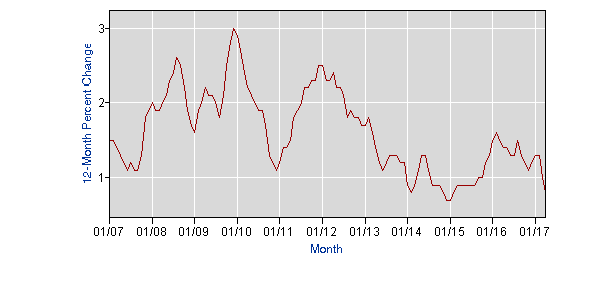May 15, 2017
Bloomberg reports that Esther George, perhaps the Fed’s biggest inflation hawk, has a new argument for raising interest rates: she claims that inflation is a big tax on the poor. This is peculiar for two reasons.
First, the people who are denied work as a result of higher interest rates will be disproportionately those at the bottom of the ladder: African Americans, Hispanics, and workers with less education. Furthermore, higher unemployment rates mean that the workers who have jobs will have less bargaining power and be less able to push up their wages. It’s hard to see how people who lose jobs and get lower pay increases will benefit from a slightly lower inflation rate.
The other reason why the argument doesn’t quite work is that even the modest inflation we have seen in recent years is driven almost entirely by rising rents.

Source: Bureau of Labor Statistics.
Higher interest rates could actually make rental inflation worse. An immediate effect of higher interest rates is lower construction. This will reduce the supply of housing in cities with rapidly rising rents, making the shortage of housing units worse. This will compound the negative effect of reduced labor market opportunities.
That hardly seems like a winning policy option for the poor.







Comments